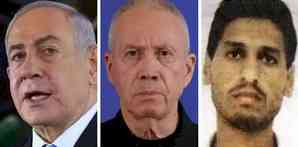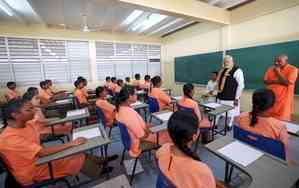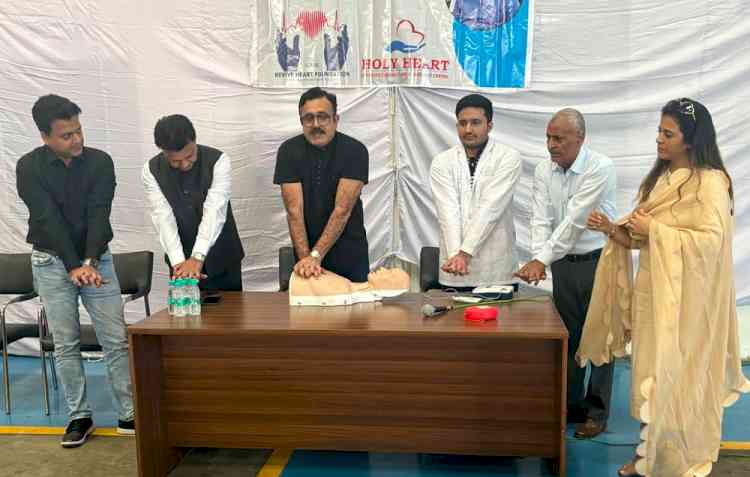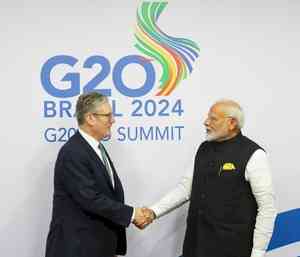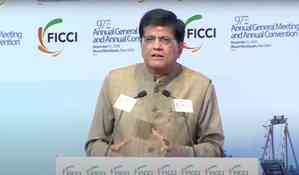Committed to retrieve land belonging to Nepal from India, says PM Deuba
Nepal's Prime Minister Sher Bahadur Deuba on Saturday said that his government is committed to take back the "disputed land currently occupied by India".
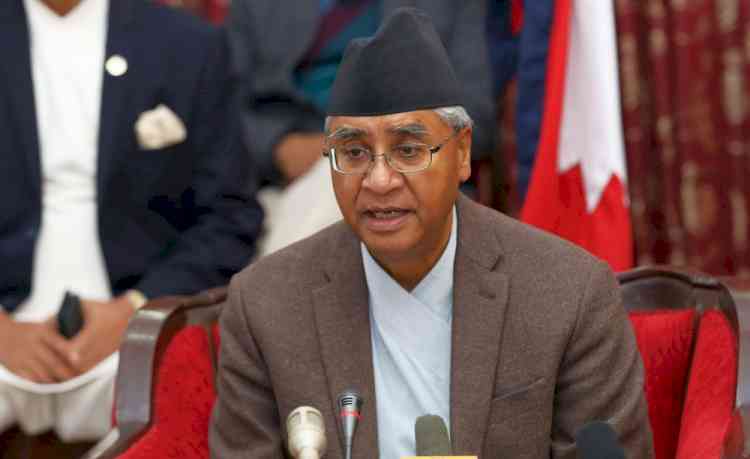
Kathmandu, May 28 (IANS) Nepal's Prime Minister Sher Bahadur Deuba on Saturday said that his government is committed to take back the "disputed land currently occupied by India".
Addressing the Parliament ahead of the Budget presentation, he said that his government is committed to protecting the land belonging to the country.
Nepal and India have had boundary disputes in Kalapani area for a long time and the bilateral relations hit the bottom low after K.P. Oli government in 2020 May unveiled a new political map incorporating Kalpani, Lipulekh and Limpiyadhura - all Indian territories.
India had rejected the unilateral territorial extension by Nepal as a "cartographic assertion" and called Nepal to settle the dispute through established diplomatic mechanisms.
However, Deuba on Saturday said that since the issue related to the boundary is sensitive, the government is committed to resolve it through talks and diplomatic means, while asserting that Kalapani, Lipulekh and Limpiyadhura belong to Nepal.
Former Prime Minister Oli, while addressing the House on Friday, had criticised the Deuba government for failing to take back the land occupied by India.
Deuba said that relations with India are multidimensional and areas of cooperation are diverse.
"We are pursuing the policy of non-alignment while conducting our foreign relations. While keeping the national interest, mutual benefits and respect, the government is committed to strengthening and seeping its relations with neighbours and all friendly nations. And the government is also committed to protect the land belonging to Nepal," he said in a reply to Oli.
Deuba, in his statement, also highlighted the energy cooperation between Nepal and India first signed in 2014. After Deuba came into power last July, his government has already decided to award the contract of one hydroelectric project to India and negotiations are on to develop another hydroelectric project.
On the issue of submission of the report of Eminent Persons' Group on Nepal-India relations, pending for three years, Deuba asked Oli why he had not received the report three years back.
Back in 2016, Nepal and India had formed an eight-member EPG mandated to review various aspects of the bilateral relations including Nepal-India Friendship Treaty 1950, and it said has worked for about three and a half years to come up with a detailed report and will submit it to Prime Ministers of Nepal and India soon. After the Indian side was reluctant to accept the report due to some reservations.
Oli had criticised the Deuba government for failing to create an environment to receive the report. When the EPG report was ready, Oli was Prime Minister in Nepal.
"What stopped you from receiving the report three years back? Nepal government is committed to create an environment so that the report would be submitted to both sides," Deuba told Oli.
Deuba also spoke on Nepal's relations with China after Oli questioned the breach in Nepal's long standing position of respecting one-China policy. Oli said that recently a senior US official visited the Tibetan camps based in Kathmandu which has breached Nepal's one-China policy. Nepal is the house of around 15,000 Tibetan refugees and some 6,000 are deprived from documentation. The US and some Western countries have been putting pressure on the government of Nepal to provide the refugee identity cards to the rest of Tibetans who are deprived from the registration.
The government is committed to one-China policy and fully aware that its land would not be used against its neighbours, said Deuba.
Oli also raised Nepal's commitment towards China's BRI which Nepal signed up with Beijing-led flagship project in 2017 but not a single project has been implemented yet. But the Deuba government has put reservations over the BRI, saying that it cannot take loans to invest in the projects to be funded under it.
The government will take wise decisions to implement the development assistance including the BRI and others as per the requirements of the country, capacity of the country and merits, Deuba said.


 IANS
IANS 
